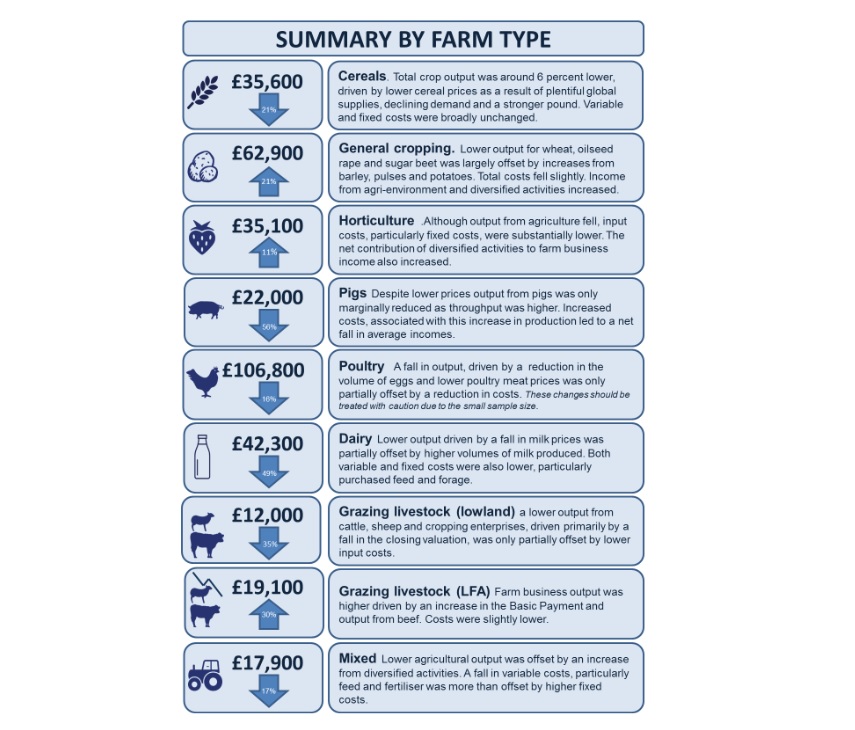
New government figures have shown a dramatic fall in farm incomes for the third consecutive year.
Data on farm business incomes are used to monitor and evaluate the UK government and EU policies, and to inform wider research into the economic performance, productivity and competitiveness of the agricultural industry.
In 2015/16, average Farm Business Income fell across all farm types except general cropping, horticulture and grazing livestock farms in the Less Favoured Area (LFA).
On cereal farms, lower prices for key commodities such as wheat, barley and oilseed rape drove the fall in incomes. On general cropping farms these price falls were mitigated by improved yields and prices for potatoes.

Dairy farms saw lower average incomes reflecting the full impact of lower milk prices which started to fall in March 2014. The average farmgate milk price was 25% lower in 2015/16 compared to the previous 12 months
On lowland grazing livestock farms, lower incomes were driven by a reduced output from cattle and sheep. LFA grazing livestock farms saw higher output from cattle together with an increase in the Basic Payment driven by higher payment rates for moorland and SDA land compared to the Single Payment, which led to a higher average income.
On specialist pig farms, increased throughput was offset by higher costs and lower prices for pig meat. Average incomes on specialist poultry farms fell due to a reduced output for both eggs and poultry meat.
Across all farm types the Basic Payment was around 5% lower than the Single Payment of 2014/15 due to a change in the exchange rate. Estimates have been made for some farms where full payment details are not yet available.
'Huge impact on farming businesses'
The National Farmers Union says this has had a huge impact on farming businesses with some sectors, such as dairy and pigs, seeing their incomes halved.
It believes the main reasons for the dramatic falls are lower commodity prices and market volatility including a strengthening pound in 2015.
NFU President Meurig Raymond said: “The NFU is continuing to work with government to ensure they provide the right support for our members – from pushing for burdensome regulation to be removed that remains a major block to growing competitiveness for most farm businesses and policy decisions based on sound science.
“We also continue to work closely with the supply chain to ensure retailers are sourcing and promoting British food wherever possible.
“In recent weeks we have focused on urging dairy processors to be open and honest in a bid to build better, fairer supply chain relationships and to ensure contracts that are fit for purpose.
“We regularly meet with retailers with recent successes on those signing our Fruit and Veg Pledge that will provide security for suppliers, fair terms and price certainty. We meet with banking leaders to ask for their continued support for the industry in these challenging times.
“These latest farm business income figures underline the need to ensure that British agriculture is dealt with fairly when the government starts its negotiations for a post-Brexit Britain.
“The most immediate issues confronting the farming sector are trade and access to labour - these must be at the heart of any discussions for the country’s future farm policy so that our industry is able to achieve its true potential.”
